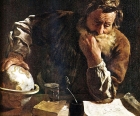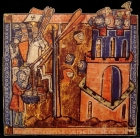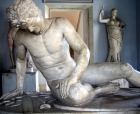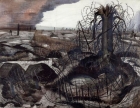KS3 planning (general)
There are many different issues, both practical and pedagogical, subject specific, school-wide and national that must be considered in any teachers’ planning. In this section you will find research, articles, guides and resources that will support you to develop your planning as it relates to teaching history and helping pupils to make progress.
Sort by:
Date (Newest first) | Title A-Z
Show:
All |
Articles |
Podcasts |
Multipage Articles
-

Enquiries to engage Year 7 in medieval anarchy
ArticleClick to view -

Enquiry questions that both chime and resonate
ArticleClick to view -

Essay writing for everyone: an investigation into different methods used to teach Year 9 to write an essay
ArticleClick to view -

Exploring the challenges involved in reading and writing historical narrative
ArticleClick to view -

Film: Picturing the past (and the future)
ArticleClick to view -

Film: Preparing a history department for the new inspection framework
ArticleClick to view -

From horror to history: teaching pupils to reflect on significance
ArticleClick to view -

From the history of maths to the history of greatness
ArticleClick to view -

Fundamental British Values and history teaching
ArticleClick to view -

Getting Year 7 to vocalise responses to the murder of Thomas Becket
ArticleClick to view -

Getting medieval (and global) at Key Stage 3
ArticleClick to view -

Harnessing the power of community to expand students’ historical horizons
ArticleClick to view -

Helping Year 7 put some flesh on Roman bones
ArticleClick to view -

Helping Year 9 debate the purposes of genocide education
ArticleClick to view -

Helping Year 9 evaluate explanations for the Holocaust
ArticleClick to view -

Helping Year 9 explore the cultural legacies of WW1
ArticleClick to view -

Here ends the lesson: shaping lesson conclusions
ArticleClick to view -

Historical anniversaries calendar
ArticleClick to view -

Historical learning using concept cartoons
ArticleClick to view -

Historical reasoning in the classroom
ArticleClick to view

